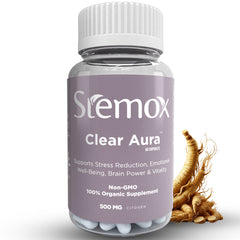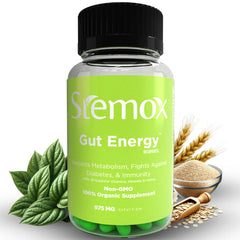Fertility is a complex interplay of hormones, lifestyle choices, and overall well-being. While many focus solely on tracking ovulation true fertility health requires a deeper understanding of the body's functions—multiple factors, from nutritional deficiencies to stress levels, contribute to reproductive wellness.
The Role of Nutrition in Fertility
A well-balanced diet rich in essential vitamins and minerals can significantly impact your reproductive health. Some key nutrients include:
- Folate & B Vitamins: Essential for fetal development and hormone regulation.
- Omega-3 Fatty Acids: Found in fish and flaxseeds, these support egg quality and reduce inflammation.
- Zinc & Selenium: Boosts sperm and egg health, making conception more likely.
- Antioxidants: Protect eggs and sperm from oxidative stress, improving overall fertility.
Managing Stress for Better Conception
Chronic stress can disrupt hormonal balance, leading to irregular cycles and lower fertility rates. Incorporating mindfulness practices such as meditation, yoga, or breathing exercises can lower cortisol levels, creating a more favorable environment for conception.
The Importance of Hormonal Balance
Hormonal imbalances can significantly impact fertility. Conditions like PCOS (Polycystic Ovary Syndrome) and thyroid disorders can interfere with ovulation and overall reproductive health. Addressing these imbalances through diet, lifestyle changes, and supplements can improve your chances of conceiving naturally.
The Role of Supplements in Fertility Support
While a well-rounded diet is crucial, certain supplements can provide extra support for reproductive health:
- Myo-Inositol: Helps with insulin regulation, especially beneficial for those with PCOS.
- CoQ10: Supports mitochondrial health and improves egg quality.
- Maca Root: An adaptogen that balances hormones and enhances fertility in both men and women.
- Vitamin D: Linked to improved ovarian function and higher pregnancy rates.
Lifestyle Adjustments to Improve Fertility
Small but impactful lifestyle changes can make a big difference:
- Exercise Moderation: While physical activity is important, excessive workouts can disrupt ovulation. Aim for balanced movement like walking, yoga, or light strength training.
- Sleep Hygiene: Poor sleep affects hormone regulation. Aim for 7-9 hours of quality sleep each night.
- Reducing Toxins: Environmental toxins in plastics, pesticides, and processed foods can interfere with fertility. Opt for organic, whole foods whenever possible.
The Male Factor: Fertility is a Shared Journey
Often overlooked, male fertility plays a crucial role in conception. Encouraging male partners to adopt a nutrient-rich diet, reduce stress, and maintain a healthy lifestyle can significantly boost sperm quality, motility, and count.
Final Thoughts: Embracing the Journey
Fertility is a journey that requires patience, self-care, and informed choices. Whether you’re trying to conceive naturally or considering assisted reproductive technologies, prioritizing overall health can make all the difference. By adopting a holistic approach to fertility, you not only enhance your chances of conception but also lay the foundation for a healthy pregnancy and baby.
Start by making small, sustainable changes today to boost your fertility. Your body—and future baby—will thank you!





Leave a comment